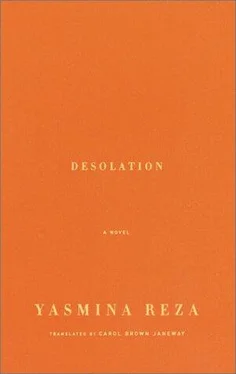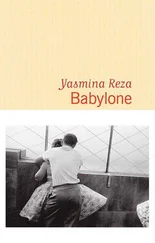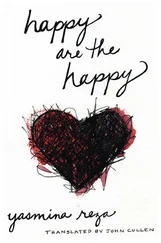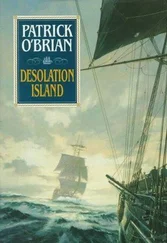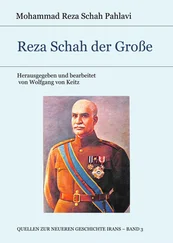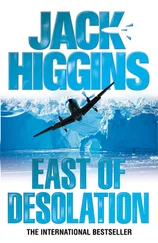Why didn’t things stay as they were at that point? Two little hours in the rue Jeanne-d’Arc. Two sort-of-mongrel — hours of no particular rapture or even the sweetness of beginnings. But how can we give up our own imaginations, and if we did, where would we be headed? She suited me because she was so out of whack, she said yes, she said no, and yes and no at the same time, she suited me because I didn’t understand her. . you see, my boy, even today I’m inventing her all over again. . she suited me because I never wearied of desiring her, because she was an illusion that kept receding, and I would rise to that like a fish to the ultimate bait.
One evening, the last (the last evening of a folly that lasted almost three years and incidentally caused me to split up with your mother), I was waiting for her in a room at the Dieppe (waiting would be my definition of it). Botton was at Interstoff, the annual textiles fair in Frankfurt. Her son was supposedly at her sister’s. I waited, swallowing packages of potato crisps I’d stolen from the deserted bar, washed down with tap water (back then there were no minibars and no televisions in the rooms), reread the Paris-Normandy newspaper for the forty-sixth time, paced around like a deranged person banging into the furniture, at two in the morning I called her house. She picked up sounding fast asleep, her voice just killed me. I said, I’m leaving the hotel and I’m coming over. She said, No, no, don’t do that, you know you can’t. I yelled, Here’s what I know, I’ve been waiting for you for four hours in this nightmare of a room. She whispered, My son has a fever, I kept him at home. I knew she was lying, I said, Me too, me too, I’ve got a fever, she laughed and hung up. I called back, I yelled, You’ll never see me again, you’re nothing but a little provincial slut, you’re not even beautiful, you’re NOTHING. I went back to Paris that same night in a state of genuine collapse.
Next morning, I was on my way to the office and this guy on the boulevard des Capucines handed me a tract for Aid to the Sahara or something. There’s no greater suffering, it said on the piece of paper, than that of a mother who has to watch helplessly as her child dies. I thought, what do you know, asshole, and I crumpled the flyer. Because what was in danger of being extinguished that day wasn’t love or any form of earthly attachment but the very illusion of life. It doesn’t matter, my boy, that this illusion was limited to the corridors at Aunay’s, hotel-room walls, car seats, and the occasional miserable gateway in Rouen, i.e., nothing that could possibly bear a close or a distant resemblance to the ordinary run of life’s illusions. There was never the faintest atmosphere of romance between us, not a single place we visited together, no wood where we walked, not a single landscape, no unfamiliar street, no place in the world we ever took the time to just be. We never did more than pause on thresholds, halt in ephemeral stairwells, and if I had the faintest talent at analyzing things, I’d conclude that with Marisa the illusion of life was all the more violent because it was unadorned by any external element whatever, and never, never confused with happiness.
With your brother-in-law Michel I can have conversations about constipation. I mean to say I can have scientific conversations with him. With Arthur, back then, I could also have such conversations, but they were man-to-man, or rather, one damned man to another. With Michel there’s some hope mixed in. I have to say to his credit that the boy does seem to know his digestive tract. For starters, he calls it the “transit,” which is a nice touch. Last Sunday, he switched me from Duphalac to Transipeg, which is supposed to be less bloating. Duphalac worked for me, but made me bloated. He forbids me to use glycerine suppositories. Obviously I’m not going to pay any attention. If I listened to him, I’d use those Eductyl suppositories of his, you shit water every ten minutes four times in a row. Michel never comes to see me without a whole little suitcase of medicines. He knows all my illnesses, he’s interested, and he enjoys fine-tuning my treatments. Your sister, who has developed something of an ecological bent, disapproves, of course. Michel is a good pharmacist, maybe even an excellent pharmacist, and I’d be glad to see him often if our exchanges were confined to the riveting sphere of illnesses and their cures. But how are you supposed to put out the welcome mat for someone who’s just spent the morning jogging from Montfort to Coignières and working his way back by train on the B line with his friends the Jewish Ramblers, without ever mentioning the subject, without asking him for example what secret branch of the tradition produced these lunatics. He takes it badly. A nice boy all the same, happy to help with the weeding, always interested in my health. Threaten his Jewish integrity (his exact words), and within three minutes flat — it never fails — he’ll be invoking genocide as a way of calling me to order. And reminding me that solidarity is not a metaphor. That it’s not necessary to go all the way back to the Garden of Eden to hold out a hand to someone, that if you want to remake the world you have to cut through the everyday games. To remind me that we are still these poor little birds stripped of our feathers, and our urgent task, if we are ever to recover our cohesion and our dignity, is to fly toward one another until we meet, be it in Jerusalem or Coignières, because Michel Cukiermann’s tribe is no longer the People of the Book, but the People of the Shoah. So, because he patiently explained Transipeg to me in all its technical detail, I do not say to him that my people, be they the People of the Book, the People of Pride, or the People of Solitude, are bitter and untrained in a different way, that to my knowledge they have never compared themselves to a shivering brood of baby birds, and I do not say that my own suffering is one it is much harder to admit to, namely, that I am forced to confront him in all his pathetic gravity, his righteousness and brotherhood, without disemboweling him.
My son, I cannot, absolutely cannot, speak one more word to anyone who lacks the capacity for doubt, who has cocooned himself in everyday simplifications, who sets up against me his own edifying vision of the world. You have certainly avoided such rigidities and you don’t act out such passions, but you have dismissed any form of ambition, opting instead for the complete pointlessness of doing anything. My friend Lionel also represents a vote for humanity as inertia, but you’re not in the same camp. Lionel doesn’t expect anything. Lionel looks at the sheer pointlessness of the day-to-day and he takes evasive action. You, my dear, are still nursing your own little pet project, because what you want is to blossom. Since I’ve been taking a close interest in plants and flowers, this expression has taken on real meaning. You lift your arms in a corolla, you offer your head to the passing breeze, and you beam at anyone who walks by.
Certain pieces in The Art of the Fugue have the where-withal to make my soul dance. First Fugue, Counterpoint 1, slow, fast, never wearied of listening to it, stated, restated, never wearying, slow, fast, slow, listening for hours, my boy, sometimes slower, sometimes faster, all of life playing itself out uninterruptedly in one’s ear, never wearying, Counterpoint 10, Counterpoint 12, Counterpoint 13, the thirteenth fugue! danced, sung at the hardest of moments, ineffable dance, ineffable song, bearer of ineffable joy, Counterpoint 14, unfinished as per the record sleeve, I liked the word unfinished, mi, re’, do, tee, lah, tee, re’—STOP— interruption caused by death, long radical silence, the work isn’t uncompleted, it’s infinite, it’s not incomplete but unfinished, arrested, rendered infinite by the grave.
Читать дальше
